Turkey national football team
 | |||
| Nickname(s) | Ay-Yıldızlılar (The Crescent-Stars)[1] | ||
|---|---|---|---|
| Association | Türkiye Futbol Federasyonu (TFF) | ||
| Confederation | UEFA (Europe) | ||
| Head coach | Fatih Terim | ||
| Captain | Arda Turan[2] | ||
| Most caps | Rüştü Reçber (120) | ||
| Top scorer | Hakan Şükür (51) | ||
| Home stadium |
Konya Büyükşehir Stadium Antalya Arena | ||
| FIFA code | TUR[3] | ||
| |||
| FIFA ranking | |||
| Current |
24 | ||
| Highest | 5 (June 2004) | ||
| Lowest | 67 (October 1993) | ||
| Elo ranking | |||
| Current |
23 | ||
| Highest | 9 (November 2002) | ||
| Lowest | 82 (November 1985) | ||
| First international | |||
|
(Istanbul, Turkey; 26 October 1923)[4] | |||
| Biggest win | |||
|
(Ankara, Turkey; 20 November 1949) (Geneva, Switzerland; 20 June 1954) (Istanbul, Turkey; 10 November 1996) | |||
| Biggest defeat | |||
|
(London, England; 14 October 1987) | |||
| World Cup | |||
| Appearances | 2 (first in 1954) | ||
| Best result | Third place, 2002 | ||
| European Championship | |||
| Appearances | 4 (first in 1996) | ||
| Best result | Semi-finals, 2008 | ||
| Confederations Cup | |||
| Appearances | 1 (first in 2003) | ||
| Best result | Third place, 2003 | ||
The Turkey national football team (Turkish: Türkiye Millî Futbol Takımı) represents Turkey in association football and is controlled by the Turkish Football Federation, the governing body for football in Turkey. They are affiliated with UEFA.
Turkey has qualified three times for the World Cup, in 1950, 1954, and 2002, although they withdrew from the 1950 event. Turkey has also qualified four times for the UEFA European Championship, in 1996, 2000, 2008, and 2016. They have reached the semi-finals of three major tournaments: the 2002 World Cup, the 2003 Confederations Cup, and Euro 2008. After their third-place finish at the 2002 World Cup, which marked a high point in Turkish football history, Turkey occupied a spot in the top ten of the FIFA World Rankings for the first time since the rankings were introduced in December 1992.[5]
History

Early years
The Turkish national team played their first ever match against Romania in 1923 drawing 2–2.[6] Zeki Rıza Sporel is considered as the first big star of Turkish football as he scored the first two goals against Romania. Turkey played their first ever official match at the 1924 Summer Olympics losing 5–2 to Czechoslovakia.
1950 FIFA World Cup
Although Turkey qualified for the 1950 World Cup, beating Syria 7–0, they had to withdraw due to financial problems.
1954 FIFA World Cup
Turkey then qualified for the 1954 World Cup after a play-off with Spain. The Turkish team first lost 4–1 to Spain, but a 1–0 win a few days later initiated a replay. On that occasion, they tied 2–2 after, booking their place after a coin toss. Turkey was put in a group along with Hungary and West Germany. The Turks, however, never played Hungary due to the tournament format, and a 4–1 defeat by the Germans was followed by Turkey carrying out a 7–0 win over South Korea. Turkey lost the play-off to West Germany 7–2. In 1956 Turkey did however play Hungary, in a friendly match in Istanbul, beating what was one of the strongest teams of the era 3–1.[7] Lefter Küçükandonyadis, all-time best player of Turkey netted in two goals during the tournament.
Near misses
Despite the introduction of a national league, and showings by Turkish clubs in European competition, the 1960s would be a barren time for the national team. Most players from the 1954 World Cup squad were retired, and the new generation of players failed to qualify for a major tournament. The 1970s saw Turkey holding back in the World Cup and European Championship qualifiers, but the team was a point too short to qualify for both Euro 1972 and Euro 1976. In the 1980s the Turkish team also suffered their worst defeats with 8–0 scorelines against Poland and twice against England. Yet the 1990 World Cup qualifiers would mark a turning point for Turkish football, with Turkey only missing out on qualification in the final game. Prominent players in this period were Rıdvan Dilmen, Oğuz Çetin, Rıza Çalımbay, Feyyaz Uçar, and European Golden Boot winner Tanju Çolak.
1990–1996
In 1990, German coach Sepp Piontek was put in charge of the national team. Under his guidance, a group of new players debuted for the national team. Many of these players which include: Bülent Korkmaz, Alpay Özalan, Sergen Yalçın, Rüştü Reçber, and Hakan Şükür would become the backbone of the national team for many years. Piontek's mission came to an end in 1993, where he was replaced by Fatih Terim, who in turn managed to qualify for Euro 1996. Turkey qualified for its first major tournament since 1954, marking another turning point for Turkish football after having failed to qualify for both Euro 1992 and the 1994 FIFA World Cup. The appointment of Piontek was a recommended move by another German coach Jupp Derwall, who had coached Galatasaray for three seasons. Derwall is regarded as the revolutionizer of Turkish football, since his introduction of modern Western European training techniques, and tactical ideas to the Turkish game also heavily influenced the national team.
Euro 1996

Turkey qualified for Euro 1996, beating both Switzerland and Sweden 2–1 along the way. Despite a solid performance during the qualifiers, Turkey lost all their matches without scoring a single goal. They did, however, go home with an award: the fair-play award, given to Alpay Özalan.
Euro 2000
Turkey failed to qualify for the 1998 FIFA World Cup, they however qualified for Euro 2000 after winning a play-off against Ireland. Turkey lost their first match 2–1 to Italy, they drew their second match against Sweden 0–0, and beat host nation Belgium 2–0, making it the first time in the history of the European Championship that a host nation had been eliminated in the first round. This victory brought Turkey into the last eight of the tournament, where they were beaten 2–0 by Portugal, with Arif Erdem missing a critical penalty.
2002 FIFA World Cup
For the 2002 FIFA World Cup Turkey finished second in their qualifying group, despite starting well and being the favourites to top the group. They lost 2–1 to Sweden in the crucial match that would decide the top spot. The Turks were forced to play the play-offs against Austria. They defeated the Austrians 6–0 on aggregate and booked their place at the finals. The Turkish team started the 2002 World Cup with a 2–1 defeat against eventual winners Brazil.[8] Turkey qualified from the group stage with a 3–0 win against China, after drawing 1–1 with Costa Rica.[9][10]
Turkey then faced home team Japan in the second round, beating them 1–0.[11] The Turkish team continued their run, as they beat Senegal 1–0 on a golden goal to book their place in the semi-finals, where a 1–0 defeat against eventual tournament winners Brazil forced them to play the third place match, and a bronze medal was won after a 3–2 victory over the South Korean team.[12][13][14] Hakan Şükür scored Turkey's first goal in 10.8 seconds, even when the South Koreans kicked off first. It was the fastest goal in World Cup history.[15] Tens of thousands of flag-waving Turkish fans greeted the World Cup squad on their return to Istanbul, where they joined a massive street party at Taksim Square.[16] Rüştü Reçber, Alpay Özalan, and Hasan Şaş were all included in the All-Star Team, with Rüştü Reçber also being voted as the best goalkeeper in the UEFA Team of the Year 2002, while Şenol Güneş was being voted as the best manager.
2003 FIFA Confederations Cup
In the summer of 2003, Turkey reached third place at the 2003 Confederations Cup. In the group stages, Turkey defeated the United States 2–1, before losing to Cameroon 0–1, in their final group game, Turkey drew 2–2 against Brazil, eliminating them from the tournament. Turkey lost to eventual tournament winners France 3–2 in the semi-final match. Turkey then defeated Colombia 2–1 to win the bronze medal. Tuncay Şanlı scored three goals and made an assist which won him the Silver Shoe Award and the Silver Ball Award, for the second best player of the tournament.
Euro 2004
The Turkish team failed to qualify for Euro 2004 on play-offs due to a loss to Latvia after finishing second in their group. This marked a turning point for the national team as new players were introduced to the national team to create a new generation.
2006 FIFA World Cup
The Turkish team once again narrowly missed out on the World Cup finals after failing to win a play-off, this time on away goals against Switzerland, again after finishing second in their group. There were scenes of violence after the game on and off the pitch where the Turkish team brawled with Swiss players down the tunnel.
.jpg)
Euro 2008
Turkey qualified for their first international tournament in six years by finishing second behind Greece in UEFA Euro 2008 qualifying Group C to reach the European Championships. They were placed alongside Switzerland, Portugal, and the Czech Republic in Group A. In their first match, they played Portugal and were beaten 2–0, but wins over Switzerland (2–1) and Czech Republic (3–2) – both secured by late goals – brought qualification for the knockout stages.[17][18][19] Again, Turkey knocked out a host nation – Switzerland – in the group stages for the second time.[20]
The quarter-final against Croatia was goalless after 90 minutes, and Croatia led 1–0 in the final minute of extra time, but another late Turkish goal by forward Semih Şentürk brought the game to penalties. The goal raised some controversy with Croatia fans and Croatia's coach, Slaven Bilić, who claimed that the goal had been scored after extra time had elapsed. This complaint, however, was overruled, and the game went into penalties. Turkey beat out Croatia in penalties 3–1.[21]
They went into the semi-final against Germany with just 14 outfield players available as a result of injuries and suspensions, but scored first and were drawing 2–2. But they finished 3rd by default after losing to Germany 3–2 with a last minute goal by Philipp Lahm.[22] Both Russia and Turkey were given bronze medals in the dressing rooms after the semi-finals.
2010 FIFA World Cup
For the 2010 FIFA World Cup qualifiers Turkey had a mixed qualifying campaign, finishing with 15 points and missing out on a play-off place to Bosnia and Herzegovina with 19 points. Spain topped the group to qualify, winning every game in the process. Coach Fatih Terim announced he would be resigning his post following their failure to qualify.[23]
Euro 2012
.jpg)
Turkey were drawn in Group A in qualification for UEFA Euro 2012, together with Kazakhstan, Austria, Belgium, Germany, and Azerbaijan. The Turkish team reached the play-offs after beating Azerbaijan 1–0 but got eliminated 3–0 on aggregate by Croatia.
.jpg)
On 14 November 2012, Turkey celebrated their 500th match in a friendly game played against Denmark at the Türk Telekom Arena in Istanbul that ended in a 1–1 draw. Before the match, footballers and coaches, who contributed to the national team's success in the past, were honored. Turkish pop singer Hadise, who wore a national team jersey with the number 500, gave a mini concert.[24][25]
2014 FIFA World Cup
Turkey were drawn in Group D in qualification for the 2014 FIFA World Cup, together with Andorra, Estonia, Hungary, the Netherlands, and Romania finishing 4th. Turkey began to lose critical points during qualification and Abdullah Avcı was sacked soon after. Fatih Terim was put in charge for the third time to lead the national team, but a 0–2 defeat against the Netherlands ended all hopes.
Euro 2016
Turkey were drawn in Group A in qualification for UEFA Euro 2016, together with Iceland, Latvia, Kazakhstan, the Netherlands, and the Czech Republic. The Turkish team qualified for their first major tournament in eight years as the best third-placed team after beating Iceland 1–0, with Selçuk İnan netting a free kick in the 89th minute. After over 18 months being unbeaten, a loss to England as a pre-tournament friendly ended the team's winning streak, subsequently leading to back-to-back losses against Croatia and Spain in the tournament. Turkey won their last game against the Czech Republic by a scoreline of 2–0, but this victory was not enough to reach the knockout phase. Despite elimination, youngster Emre Mor's skillful display and assist during the game revealed a hopeful future for Turkish football.
Fixtures and results
2016
| 24 March Friendly | Turkey |
2–1 | |
Antalya, Turkey |
|---|---|---|---|---|
| 20:45 UTC+2 | Tosun |
Report | Granqvist |
Stadium: Antalya Arena Referee: Danny Makkelie (Netherlands) |
| 29 March Friendly | Austria |
1–2 | |
Wien, Austria |
|---|---|---|---|---|
| 20:45 | Junuzović |
Report | Çalhanoğlu Turan |
Stadium: Ernst-Happel-Stadion Referee: Paweł Gil (Poland) |
| 22 May Friendly | England |
2–1 | |
Manchester, England |
|---|---|---|---|---|
| 17:15 | Kane Vardy |
Source | Çalhanoğlu |
Stadium: City of Manchester Stadium Referee: Deniz Aytekin (Germany) |
| 29 May Friendly | Turkey |
1–0 | |
Antalya, Turkey |
|---|---|---|---|---|
| 20:45 | Topal |
Stadium: Antalya Arena Referee: Daniel Siebert (Germany) |
| 5 June Friendly | Slovenia |
0–1 | |
Ljubljana, Slovenia |
|---|---|---|---|---|
| 20:15 | Yılmaz |
Stadium: Stožice Stadium Referee: Marco Guida (Italy) |
| 12 June Group Stage | Turkey |
0–1 | |
Paris, France |
|---|---|---|---|---|
| 15:00 (16:00 UTC+3) |
Modrić |
Stadium: Parc des Princes Attendance: 43,842 Referee: Jonas Eriksson (Sweden) |
| 17 June Group Stage | Spain |
3–0 | |
Nice, France |
|---|---|---|---|---|
| 21:00 (22:00 UTC+3) |
Morata Nolito |
Stadium: Allianz Riviera Attendance: 33,409 Referee: Milorad Mažić (Serbia) |
| 21 June Group Stage | Czech Republic |
0–2 | |
Lens, France |
|---|---|---|---|---|
| 21:00 (22:00 UTC+3) |
Report | Yılmaz Tufan |
Stadium: Stade Bollaert-Delelis Attendance: 32,836 Referee: Willie Collum (Scotland) |
| 31 August Friendly | Turkey |
0–0 | |
Antalya, Turkey |
|---|---|---|---|---|
| 21:30 (UTC+3) | Stadium: New Antalya Stadium Attendance: 32,000 Referee: Damir Skomina (Slovenia) |
| 5 September 2018 FIFA WC Q | Croatia |
1–1 | |
Zagreb, Croatia |
|---|---|---|---|---|
| 20:45 (20:45 UTC+2) |
Rakitić |
Report (FIFA) Report (UEFA) |
Çalhanoğlu |
Stadium: Stadion Maksimir, Zagreb Attendance: 0[note 1] Referee: Szymon Marciniak (Poland) |
| 6 October 2018 FIFA WC Q | Turkey |
2–2 | |
Konya, Turkey |
|---|---|---|---|---|
| 21:45 UTC+3 | Tufan Çalhanoğlu |
Report (FIFA) Report (UEFA) |
Yarmolenko Kravets |
Stadium: Torku Arena Attendance: 42,000 Referee: Manuel Gräfe (Germany) |
| 9 October 2018 FIFA WC Q | Iceland |
2–0 | |
Reykjavik, Iceland |
|---|---|---|---|---|
| 18:45 (21:45 UTC+3) |
Toprak Finnbogason |
Report (FIFA) Report (UEFA) |
Stadium: Laugardalsvöllur Attendance: 9,775 Referee: Mark Clattenburg (England) |
| 12 November 2018 FIFA WC Q | Turkey |
2–0 | |
Antalya, Turkey |
|---|---|---|---|---|
| 21:45 UTC+3) | Yılmaz Şen |
Stadium: New Antalya Stadium Attendance: 32,000 Referee: Tamás Bognár (Hungary) |
Coaching staff
| Head Coach | |
| Assistant Coach | |
| Assistant Coach | |
| Fitness Coach | |
| Goalkeeping Coach | |
| National Team Manager | |
| Team Doctor | |
Squad
Current squad
The following players were called up for the 2018 FIFA World Cup qualification game against Kosovo on November 12, 2016.[27]
Caps and goals updated as 12 November 2016 after the match against Kosovo.
Recent call-ups
The following players have also been called up to the Turkey squad within the last twelve months.
| Pos. | Player | Date of birth (age) | Caps | Goals | Club | Latest call-up |
|---|---|---|---|---|---|---|
| GK | Ali Şaşal Vural | 10 July 1990 | 0 | 0 | UEFA Euro 2016 PRE | |
| GK | Muammer Zülfikar Yıldırım | 14 September 1990 | 0 | 0 | v. | |
| DF | Hakan Balta | 23 March 1983 | 50 | 2 | v. | |
| DF | Caner Erkin | 4 October 1988 | 51 | 2 | v. | |
| DF | Serdar Aziz | 23 October 1990 | 11 | 1 | v. | |
| DF | Ahmet Oğuz | 16 January 1993 | 0 | 0 | v. | |
| MF | Ozan Tufan | 23 March 1995 | 31 | 3 | v. | |
| MF | Olcay Şahan | 26 May 1987 | 27 | 2 | v. | |
| MF | Emre Mor | 24 July 1997 | 8 | 0 | v. | |
| MF | Yasin Öztekin | 19 March 1987 | 6 | 0 | v. | |
| MF | Nuri Şahin | 5 September 1988 | 50 | 2 | v. | |
| MF | Gökhan Töre | 20 January 1992 | 26 | 0 | v. | |
| MF | Alper Potuk | 8 April 1991 | 15 | 0 | UEFA Euro 2016 PRE | |
| MF | Mahmut Tekdemir | 20 January 1988 | 3 | 0 | UEFA Euro 2016 PRE | |
| MF | Kerim Frei | 19 November 1993 | 5 | 0 | v. | |
| FW | Mevlüt Erdinç | 25 February 1987 | 35 | 8 | v. | |
INJ Withdrew due to an injury.
PRE Preliminary squad.
Previous squads
FIFA World Cup squadsFIFA Confederations Cup squadsUEFA European Championship squads |
Summer Olympics squads |
Competitive record
FIFA World CupMain article: Turkey at the FIFA World Cup
Third Place
UEFA European ChampionshipMain article: Turkey at the UEFA European Football Championship
Third Place
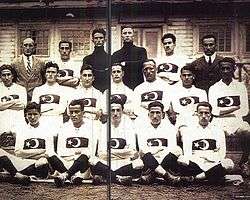 Turkey at the 1924 Summer Olympics in Paris. 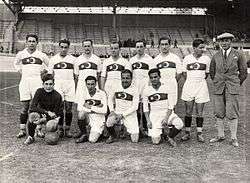 Turkey at the 1928 Summer Olympics in Amsterdam. Summer Olympics
FIFA Confederations Cup
Honours Turkey national football team on an Azerbaijan stamp for the 2002 FIFA World Cup.
Player historyMain article: List of Turkey international footballers
Most capped playersPlayers in bold are still active, at least at club level.[28] As of 12 November 2016.
Top goalscorersGoalscorers with an equal number of goals are ranked in chronological order of reaching the milestone. Bold indicates still active players.[29]
Past managersMain article: List of Turkey national football team managers
DecorationIn 2002, the national team was honored with the Turkish "State Medal of Distinguished Service" for its third place achievement at the 2002 FIFA World Cup. All the team members, coaches and officials were bestowed by a medal.[30] Kit HistoryThe classical home kit of Turkey is an all-white kit iwith a white shirt, white shorts and white socks. The shirt has got a red stripe on the chest and the crescent-Star of the Turkish flag. In 2008 the team changed the home and away colours. Making the all-red shirt the home design and the classical all-white colours the away kit. The Turkey's official kit suppiler is currently produced by Nike since 2003. Before that briefly the former kit suppiler were German company Adidas. Home
Away
Gallery
Notes
References
External links
| |||||||||||||||||||||||||||||||||||||||||||||||||||||||||||||||||||||||||||||||||||||||||||||||||||||||||||||||||||||||||||||||||||||||||||||||||||||||||||||||||||||||||||||||||||||||||||||||||||||||||||||||||||||||||||||||||||||||||||||||||||||||||||||||||||||||||||||||||||||||||||||||||||||||||||||||||||||||||||||||||||||||||||||||||||||||||||||||||||||||||||||||||||||||||||||||||||||||||||||||||||||||||||||||||||||||||||||||||||||||||||||||||||||||||||||||||||||||||||||||||||||||||||||||||||||||||||||||||||||||||||||||||||||||||||||||||||||||||||||||||||||||||||||||||||||||||||||||||||||||||||||||||||||||||||||||||||||||||||||||||||||||||||||||||||||||||||||||||||||||||||||||||||||||||||||||||||||||||||||||||||||||||||||||||||||||||||||||||||||||||||||||||||||||||||||||||||||||||||||||||||||||||||||||||||||||||||||||||||||||||||||||||||||||||||||||||||||||||||||||||||||||||||||||||||||||||||||||||||||||||||||||||||||||||||||||||||||||||||||||||||||||||||||||||||||||||||||||||||||||


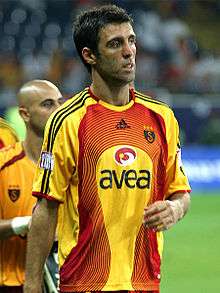

.jpg)

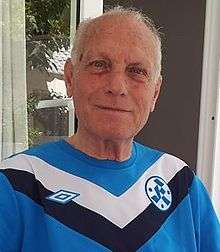
.jpg)

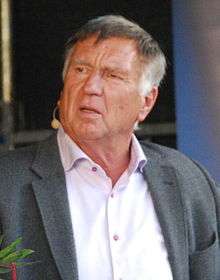

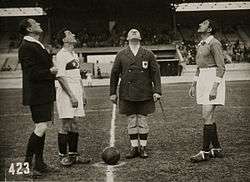

_and_Cor_van_der_Hart_in_4_May_1958.jpg)
